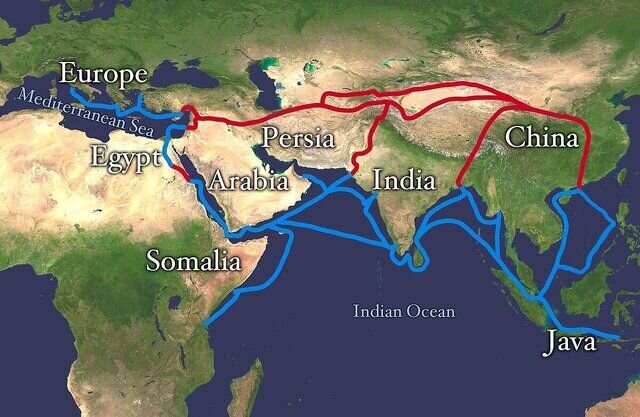GSI, ATES sign MOU on geology, Silk Road

TEHRAN –The Geological Survey and Mineral Exploration of Iran (GSI) and the Association for Trans-Eurasia Exchange and Silk-Road Civilization Development (ATES) have signed a memorandum of understanding (MOU) to exchange information in the field of geology and civilization of the Silk Road.
This memorandum was signed by Reza Shahbazi, the president of GSI, and Fahu Chen, the head of ATES, from the Institute of Tibetan Plateau Research, Chinese Academy of Sciences, on the sidelines of the third International Conference on Quaternary Sciences, ISNA reported.
Organized by the Iranian Quaternary Association (IRQUA), the International Conference was held in Tehran from January 29 to February 1.
"Natural Processes and Geohazards" was one of the topics discussed by experts and earth sciences attending the conference.
Razyeh Lak, head of the board, at the closing ceremony of the third international quaternary conference, said IRQUA like the International Quaternary Research Association (INQUA), promotes international communication and cooperation in the experimental and applied aspects of quaternary research, to contributes to practical methods in assessing the scale and rate of global environmental change.
Talking about applied research topics related to Quaternary sciences, she said climate change, climate modeling, coastal and marine processes, man and biosphere, human origin/ evolution and environmental effects, stratigraphy and chronology, risk assessment and terrestrial process, deposit and history are among the most important subjects of applied researches.
She went on to say that IRQUA is determined to develop its regional and international cooperation network in Asia in the coming years within the structure of universities, institutes, associations, and different centers related to quaternary sciences.
In addition to structural development, the promotion of research, definition, and the continuation and completion of ongoing projects, the development of public education will also be planned.
Third Intl. Conference on Quaternary Sciences
This conference was held both in-person and online with a full scientific program, field trips, and workshops that provided a platform for presenting state-of-the-art research on Quaternary science in Iran and elsewhere, and a unique opportunity for networking and collaboration.
The IRQUA international conference generally takes place every 2 years and offers a diverse program around five main themes that are critical in understanding the ongoing societal and climate challenges.
It aimed at improving participants’ understanding of the relationship between the different natural and anthropogenic factors and processes that shape the Quaternary environment, landscape, and climate, human evolution, and ancient civilizations
Quaternary sciences are critical in contributing the necessary knowledge to face current societal challenges and mitigate the ongoing climate change.
To this end, the IRQUA aimed to convene the Iranian and international Quaternary scientists to present their work and discuss the processes and mechanisms that shaped the landscape, environments, civilizations, and ecosystems of the past 2.5 million years.
Exchanging research interests on the global and regional scale and promoting interdisciplinary studies in Quaternary science was another goal of the conference.
The meeting consisted of various interconnected sessions covering paleoclimate and paleoceanography, geomorphology, soil system sciences, natural hazards, stratigraphy, sedimentology and paleontology, and archeology.
It also tried to foster greater collaborations to lead to solutions in all fields of Quaternary science, and to share and engage the science community, policymakers, and stakeholders.
MT/ MG
Leave a Comment